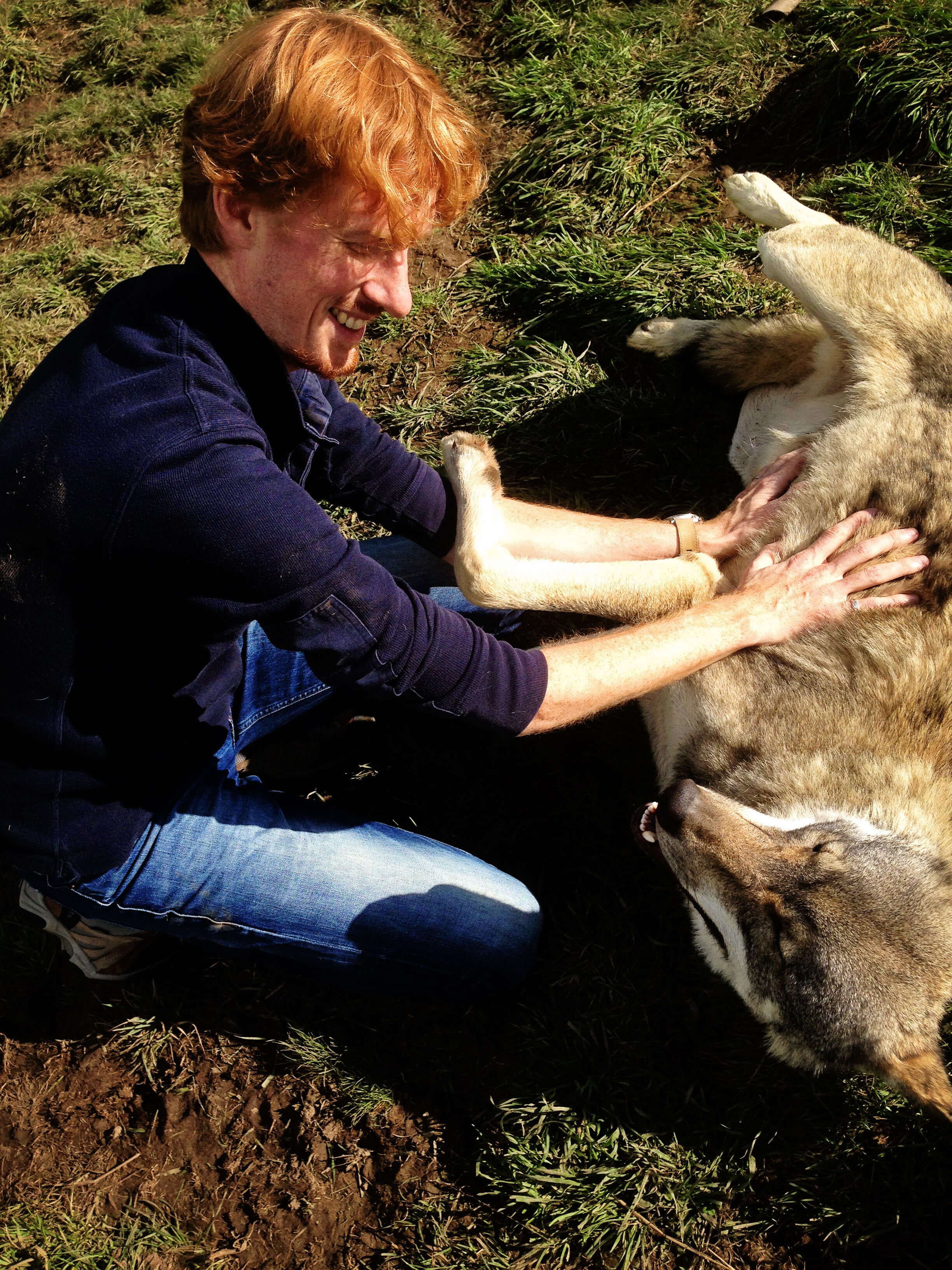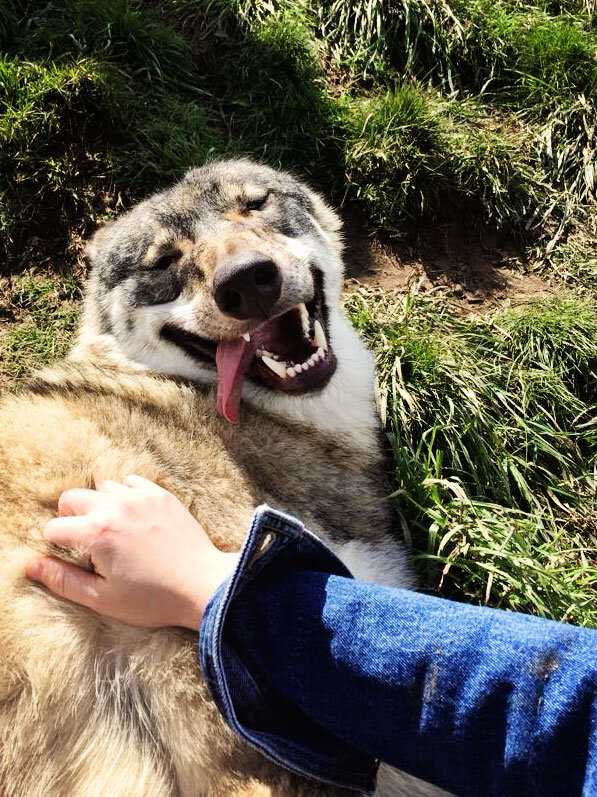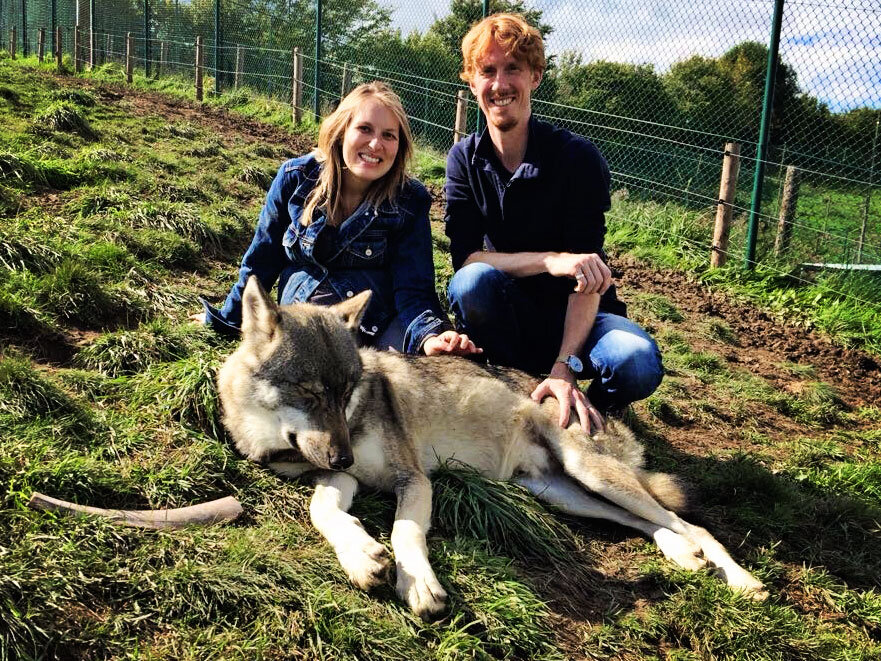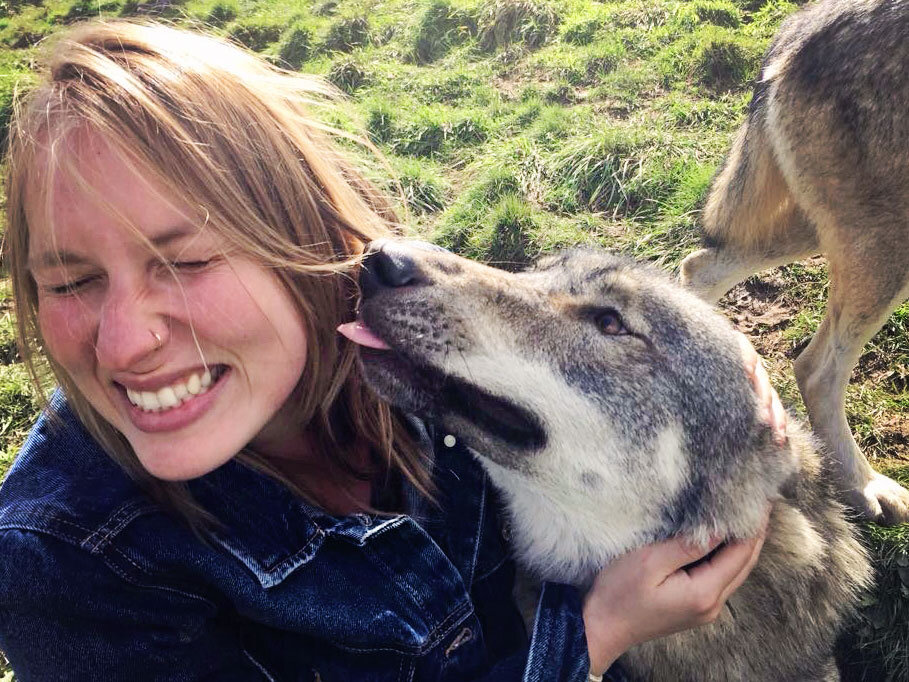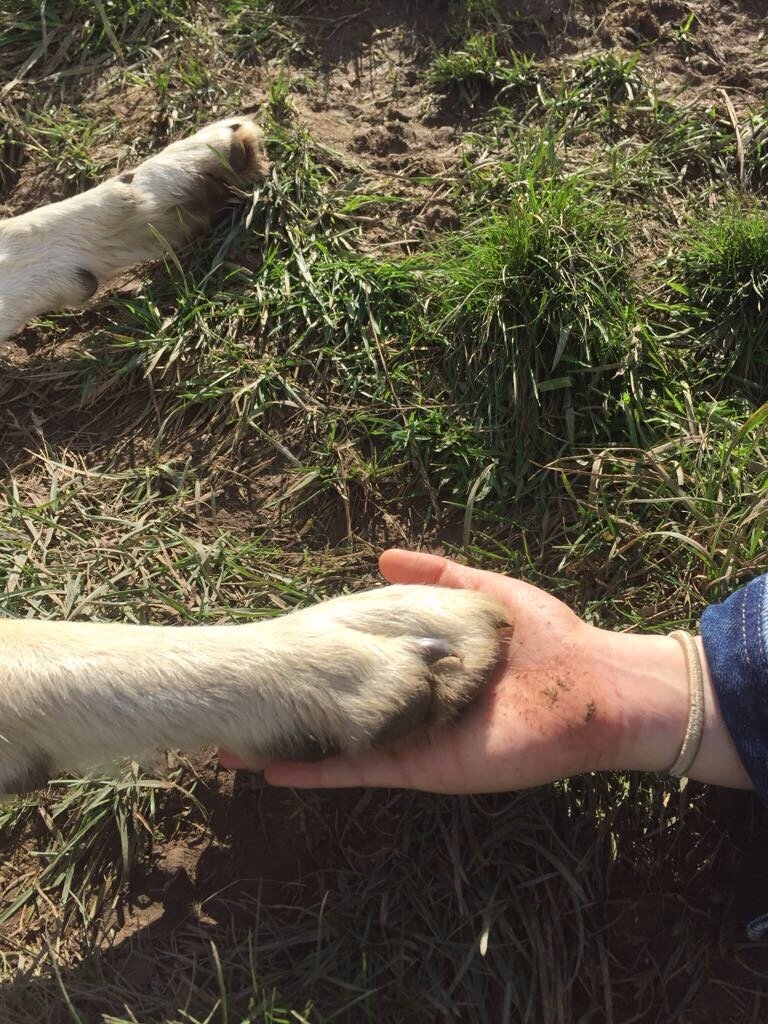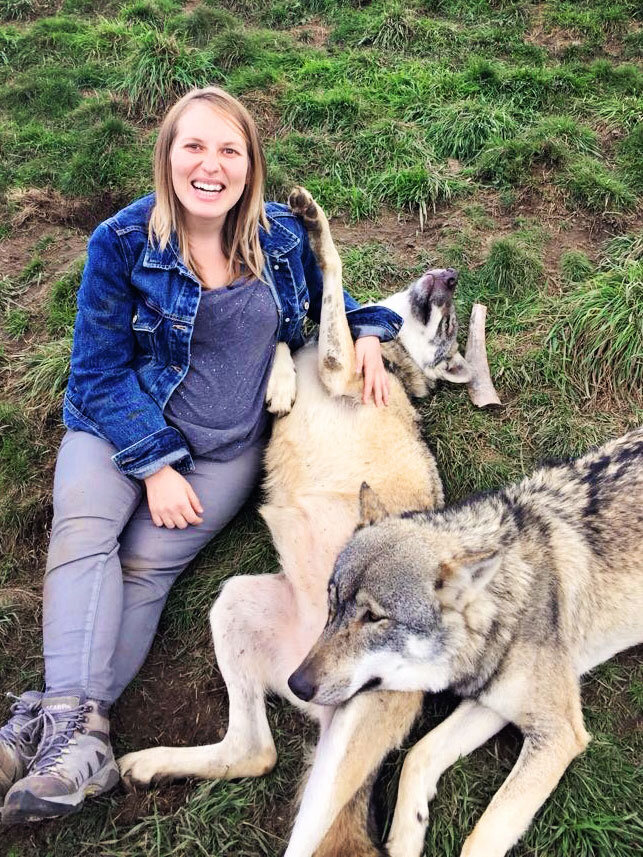Amongst Wolves
One of my favorite films growing up as a child was Disney’s The Jungle Book. Not only was this film full of animals and some pretty jazzy music (Bare Necessities never fails to bring a smile to my face), but the idea of a little boy being adopted and raised by wolves had always fascinated me. I consider wolves to be such beautiful creatures, but wary of their reputation (think of Red Riding Hood or Aesop’s Fables).
Earlier this year, we bumped into BBC’s Ingenious Animals. In Episode 3 (See a clip here), they delve into the world of animal communication. Specifically, they discuss communication amongst wolves. Previously, it had always been thought that the wolf pack was held together by the aggressive and domineering alpha male. With further research, they found that this was not necessarily the case. During experiments where they took turns removing different members from the pack, the rest of the pack would howl for their missing family member. It was discovered that the wolves would utilize a different call depending on who was missing. They realized that these calls changed depending on the closeness they felt for the missing wolf, in the same way that you would feel different if an acquaintance left the room or your best friend. Thus, this was not necessarily a top-down hierarchy in the traditional sense.
Furthermore, in experiments where they were comparing differences between wolves and domesticated dogs, they found some fascinating results. They performed experiments in which they observed the difference between how wolves share food versus dogs, thus measuring the animals’ tolerance. What they found was that dogs don’t share their food. Whoever is the alpha dog, goes in and eats everything, while the subordinate dog does not even attempt to get a bite. There’s no dinner for the underdog. In all the experiments where the wolf alpha male was released with a subordinate, the wolves always shared their food.
The reasoning behind this behavior? Dogs are scavengers and less likely to share. Wolves have always hunted in packs to bring down their prey, thus they have a need for tolerance, communication, partnership, and friendship, ensuring their success and survival. We could learn a lot from these fascinating and marvelous creatures, don’t you think?
So, why am I telling you this?
Firstly, because we cannot assume that our postulations or the knowledge we have is correct. This is something I am definitely working on :)
Secondly, because this past September we had the incredible privilege of visiting The Wolf Conservation Association in Belgium. Although almost extinct in Europe at one point in time, the wolf has slowly been making a comeback.
This association rescues wolves from private citizens, animal parks, and zoos that no longer wish to keep them. They are often mistreated and when they are no longer wanted are euthanized. It’s heartbreaking to hear of their mistreatment and that once the entertainment value dissipates many of these animals are killed. This association believes that this is not responsible behavior neither does it show love or fair treatment for the animals in question. They champion the cause of wolves by rescuing them, educating the public and making sure that these wolves live in nature or in the very least semi-natural conditions. It’s not just about the protection and preservation of the species but also of the ecosystem. They apply pressure on public authorities for changes in laws for the protection of animals in Belgium and Europe. Wolves aren’t pets.
And if you ever doubted their role within the ecosystem, take a peek at this incredible video which explains what happened to the natural environment once wolves were reintroduced at Yellowstone National Park in the USA.
Our day at the association was wonderful. We were able to see all different types of wolves from all over Europe. We even saw some beautiful Hudson Bay wolves which are native to Canada. All these were semi-wild and very wary of us.
However, we had the amazing privilege to enter into one of the massive enclosures where we were allowed to interact with two Swiss wolves (a brother and sister) that had been hand-reared and were unable to be released into the wild. It was incredible and I’ve been reliving it in my mind and heart ever since. It was like receiving the most loving greeting from your best friend or a wonderful relative you haven’t seen in years. I don’t know if it was the pregnancy hormones that endeared me to them, but I was so moved by their affection. I almost started to feel guilty, as the brother wolf barely left my side. They of course made their rounds to all the guests who had entered in the enclosure, but the brother wolf stayed with me most of the time allowing me to pet him, talk to him, and even feel the pads under his feet as he cuddled with me and sat or laid by my side. I know this wouldn’t happen in the wild and neither should it, but it made me imagine how a perfect world would be without fear. The sister wolf would of course come around, say hi, give a short cuddle, make sure she wasn’t missing anything too exciting, and then would be off on her way.
Unfortunately, time was limited within the enclosure (I think that was the fastest 35-40min ever) and we were not allowed to bring our camera equipment, but I trust that these images we captured with our phones can give you a sense of what happened.
When I think back to that day, I have tears in my eyes, because it’s what I imagine heaven would be like—no fear, only perfect peace where, “the wolf...shall dwell with the lamb, and the leopard shall lie down with the kid; and the calf and the young lion… together; and a little child shall lead them," (Isaiah 11:6).
It's a memory that I will treasure for the rest of my life. And one which encourages me to keep the discussion going on how we look at, think of, and treat our world around us whether it be how we treat each other, nature or wildlife. Please remember that when you invest in a piece of fine art with us or any product you purchase in our online shop, a percentage of all proceeds will be donated to one of three organizations whose sole mission is: wildlife and habitat conservation, offering medical care to displaced persons in war torn countries, or rescuing children from the sex trafficking industry.
I’ll leave you with Jane Goodall’s extraordinary words,” Let us develop respect for all living things. Let us try to replace violence and intolerance with understanding and compassion. And love.”


